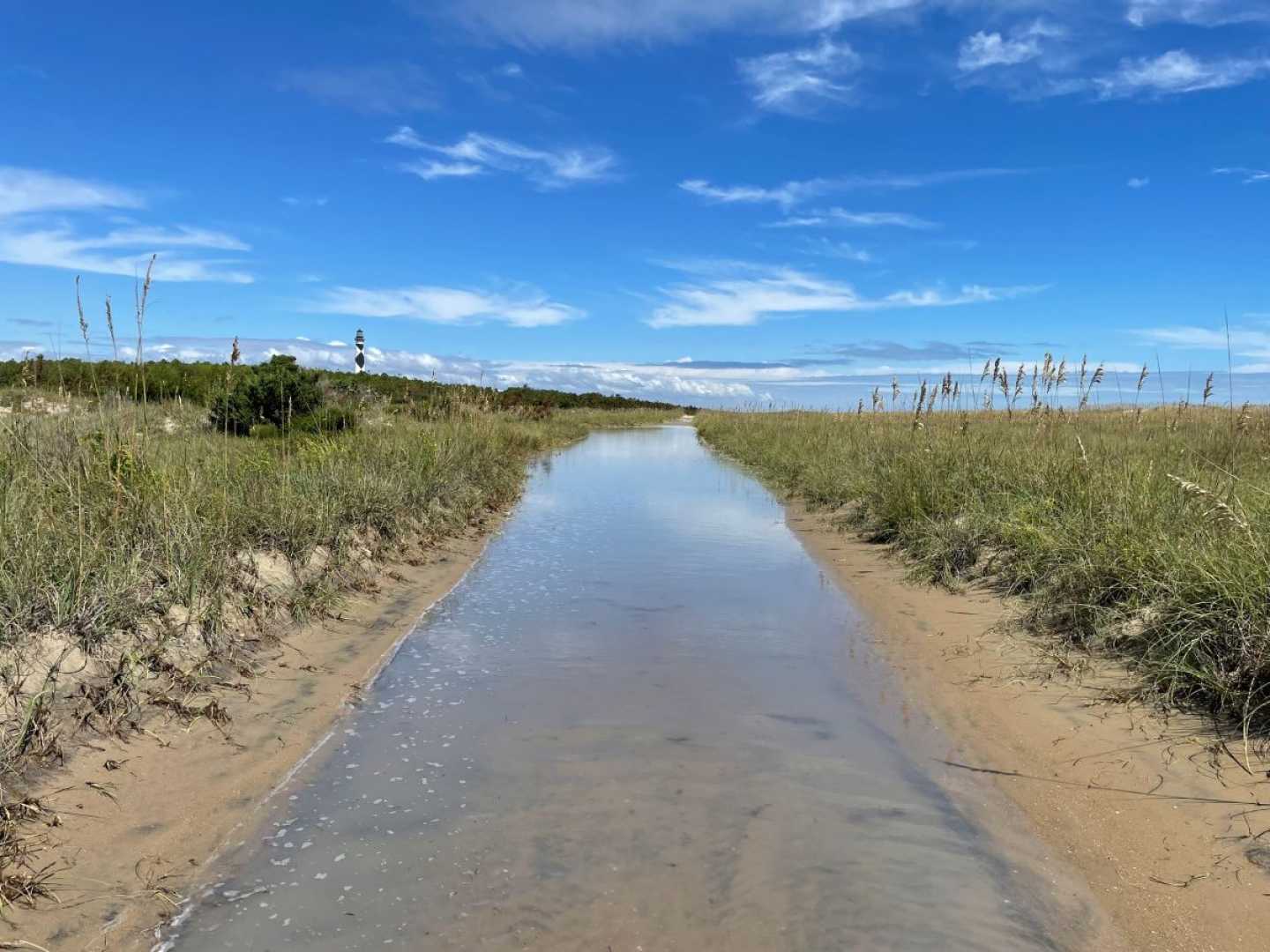News
Rising Seas Threaten Cape Lookout National Seashore, Study Warns

A recent U.S. Geological Survey study warns that rising sea levels and intensifying storms will significantly worsen coastal hazards at Cape Lookout National Seashore, threatening its barrier islands and infrastructure. The study, published in a scientific journal, highlights the increasing risks of flooding, erosion, and rising groundwater tables due to climate change.
The research, conducted by scientists Jennifer Thomas, Patrick Barnard, and Sean Vitousek, projects that with just 0.5 meters (1.6 feet) of sea level rise, 47% of the barrier island surface area will flood daily. Extreme storms could flood more than 85% of the island, doubling the flood risk with only 2 to 4 inches of sea level rise. The study also notes that a third of the seashore is sinking at a rate of more than 2 millimeters annually, exacerbating erosion and habitat loss.
Cape Lookout Superintendent Jeff West confirmed that the findings align with what park staff have observed over the years, including increased flooding and storm damage. “Not only does it confirm what we have been seeing, but it helps detail what to expect in high visitor use areas,” West said. He added that visitors should expect significant environmental changes over the next two decades, impacting access and services.
The study emphasizes the critical role of barrier islands in protecting mainland communities from storm impacts. However, as these islands become more vulnerable, mainland coastlines will also face greater risks. The researchers stressed that managing coastal resources under a changing climate will be increasingly challenging.
Park officials are already taking steps to adapt, including relocating vulnerable structures, elevating docks, and implementing beach nourishment projects. For example, the Long Point Camp, which was frequently damaged by storms, has been moved to a higher, less vulnerable location. The new camp features sustainable designs, such as solar and wind power systems, to reduce environmental impact.
Despite these efforts, West acknowledged the emotional toll these changes will have on those who love the seashore. “People who live and work in coastal areas, people that visit and love these areas, well, they will suffer from emotional loss,” he said. The park service continues to plan and adapt, but West emphasized that gradual, devastating change is difficult to accept and manage.
The study serves as a guide for the National Park Service and other coastal managers, providing critical data to inform decisions on how to address sea level rise and storm impacts. As Cape Lookout faces an uncertain future, the park service remains committed to balancing human safety with environmental preservation in a rapidly changing landscape.












